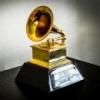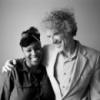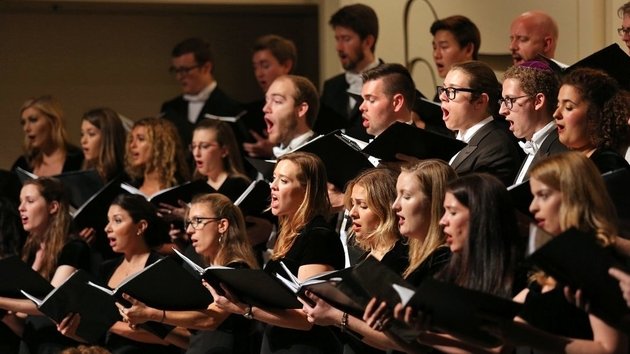
While this holiday season is unlike any other because of the COVID-19 crisis, the need for human compassion and forgiveness is even greater. With composer Richard Danielpour’s dramatic oratorio, The Passion of Yeshua, an intensely personal telling of the final hours of Christ on Earth, such solace can be found. The work received its world premiere at the Oregon Bach Festival in 2018, with a second performance at UCLA and its East Coast premiere and first full-scale performance in April 2019 with the Buffalo Philharmonic Orchestra (BPO) under the baton of that organization’s music director, JoAnn Falletta.
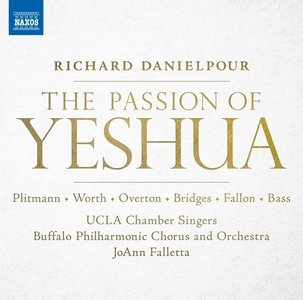
The 100-minute opus, which also features members of the Buffalo Philharmonic Chorus and the UCLA Chamber Singers, as well as six soloists, including baritone James K. Bass, was recently nominated in three Grammy categories for the Naxos recording of last year’s performance. (The 63rd ceremony takes place Jan. 31.) Bass, himself a three-time Grammy-nominated singer and conductor who has been leading the UCLA ensemble since 2016, recalled the Buffalo concert:
“The piece is epic in its soundscape and universe. Not just in length, which itself is enormous, but imagine the biggest movie soundtrack orchestra and that’s what you have for this. There’s an array of percussion, all types of doubled winds and vocal writing some tender and delicate — that matches that. What makes it difficult,” added Bass, who is also associate conductor and director of education for the Miami-based ensemble Seraphic Fire, as well as artistic director of the Long Beach Camerata Singers, “is that the piece is in two languages, Hebrew and English.”

Bass pointed out that his colleague Danielpour, who is Co-Area Head, Composition at the UCLA Herb Alpert School of Music, “is ethnically half-Jewish and half-Persian and wanted to tell the story of the death week of Jesus from a different perspective. Many composers have set this —the Bach Passions are the most famous — but Richard didn’t want to change the story. Musically, it illuminates the darker moments [because] here was a man who had thoughts about the way the world should go and was betrayed by his friends and fellow countrymen and was then murdered. It’s what Yeshua [the Hebrew name for Jesus, here sung by bass-baritone Kenneth Overton] was feeling. There’s no hint of the resurrection, but it’s this moment in time, those awful days for this one individual man. Richard captures so many beautiful and angsty moments.”
Indeed, while the choruses are extremely powerful, both Mary the mother of Jesus (mezzo-soprano J’Nai Bridges) and Mary Magdalene (soprano Hila Plitmann) are also given a central place in the recording that is ultimately a work of radiant spirituality. Other soloists include tenor Timothy Fallon and baritones Matthew Worth and Bass, who has been a soloist with, among other organizations, The Cleveland Orchestra. He admitted that singing in the work that he also prepared for his chorus was a tad unusual.
“I’ve been privileged to have had a solo, vocal, and ensemble career, but generally, the philosophy is to not solo with groups you lead, because it could be seen as an abuse of power. But in this case, I was pleased because Richard approached me and asked me to sing in Buffalo — I didn’t sing in Los Angeles — and said he’d like me to be on the recording. Working with preparing the choir,” he added, “then to turn around and sing (my part was the High Priest Kayafa) is [rare]. I told the choir that I’m going to do the same things I’m asking you to do. It’s a wonderful way to model.”
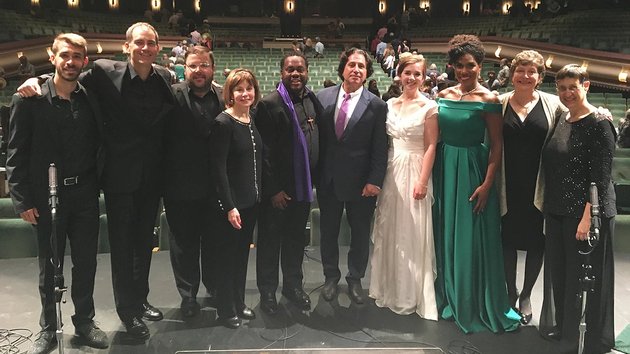
And while the pandemic has been particularly hard on singers, Bass said he and his contemporaries are doing “as much as we can. For those of us that make art by expelling air, this is the worst-case scenario. We have to do what we can and celebrate those things we have done in the past, as well as create virtual choir things on Zoom, which is a strange thing.
“I hope,” added Bass,” that we don’t lose a generation of young singers, but on the other side of this, we may see the birth of new ensembles and there will be a core of people that pick up where we left off. It will not be exactly the same but can we grow from this? I think there will be a brief renaissance, and we’re going to make this happen.”


